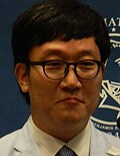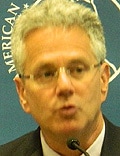Este es un artículo de
Para leer más artículos de Medscape puedes acceder a su página web www.medscape.com
SAN FRANCISCO — The greater the overuse of smartphones, the greater the risk for severe psychopathologies in adolescents, new research suggests.
The study of nearly 200 adolescents in Korea showed that those who were very high users of smartphones had significantly more problematic behaviors, including somatic symptoms, attentional deficits, and aggression, than did those who were low users.
In addition, the investigators note that the effects of smartphone overuse were similar to those of Internet overuse. Internet use gaming disorder has been included in Section 3 of the just-released fifth edition of the Diagnostic and Statistical Manual of Mental Disorders (DSM-5), the section of the manual reserved for conditions considered worthy of further research.
"Regardless of addictive patterns, our results showed that the more addicted that youth were, the more severe their psychopathologies were," study investigator Jonghun Lee, MD, PhD, professor of psychiatry at the Catholic University of Daegu School of Medicine in South Korea, told reporters attending a press briefing here at the the American Psychiatric Association's (APA's) 2013 Annual Meeting.
"The number of adolescents addicted to smartphone use will increase because the popularization of smartphones is an inevitable social trend. And the younger they are, the more vulnerable they are," said Dr. Lee.
Therefore, he said, clinicians should try to screen for smartphone addiction, as well as for Internet or computer addiction, in their adolescent patients.
However, "there is no standardized scale for defining this, so we need to develop it. It's important to identify youth who are at risk to prevent their addiction," Dr. Lee told Medscape Medical News.
Press conference moderator Jeffrey Borenstein, MD, chair of the Council on Communications for the APA, added that "this raises an important opportunity" for clinicians to help their patients.
"The majority of people who have psychiatric illnesses — depression, for example — don't get treatment. I think a part of the puzzle is educating the public, but it's also improved screening," said Dr. Borenstein.
Dramatic Increase in Cell Phone Use
According to
a report released by the Pew Research Center last March, 37% of teens in the United States had smartphones in 2012 — up significantly from 23% in 2011. In addition, 95% of all teens use the Internet.
Dr. Lee reported that smartphone use in children and adolescents between the ages of 5 and 19 years in Korea increased dramatically from 7.5% in 2009 to 67% in 2012.
"There are a wide range of smartphone functions, including Internet use, online gaming, digital cameras, and GPS [Global Positioning System] navigation. And you can use these functions anywhere and at any time. But these various convenient functions are contributing factors to excessive use," he said.
He added that according to the Seoul Metropolitan Office of Education, 6.5% of Korean adolescents have reported that they are affected by excessive use of smartphones.
"This has become a social issue, and they noted that it has negatively affected their studies," said Dr. Lee. In addition, according to the Korean Youth Counseling and Welfare Institute, 41.3% of youth reported excessive gaming, 12% reported abnormal behavior after losing their smartphone, 9.3% reported conflicts with parents, and 9% reported using their smartphone to look at obscene material.
"These are highly predictive of addiction," said Dr. Lee. "Our earlier study showed that using it in particular situations was also associated with smartphone addiction, such as using it when going to bed or in the bathroom."
"Recently, we have also heard that smartphone overuse by youth is associated with depression, more exposure to obscene material, and even suicide."
For the current study, the investigators enrolled 195 adolescents who were questioned using the 2010 Smart-phone Addiction Rating Scale (SARS) and the Young Internet Addiction Scale (YIAS). In addition, the Korea–Youth Self Report (K-YSR) was used to assess possible psychopathologies, including somatic symptoms, attention problems, and aggression.
Results showed that total problematic behavior scores on the K-YSR were significantly correlated with both the total SARS (P < .001) and YIAS (P < .001) scores.
In post hoc analyses, the participants were divided into 4 subgroups: low Internet/low smartphone (low-low) users, high Internet/high smartphone (high-high) users, low Internet/high smartphone (low-high) users, and high Internet/low smartphone (high-low) users.
The low-low group had significantly lower scores than the other 3 groups on total problematic behaviors and internalizing problems (P < .01 for all), and that group had significantly fewer externalizing problems than the high-high group (P < .01).
In addition, there was a significant difference among the groups on 7 other subscales of the K-YSR, including withdrawal (P < .05), somatic symptoms (P < .01), and thought problems (P < .01), as well as depression/anxiety, attention problems, delinquency, and aggression (all, P < .001).
The investigators add that the number of adolescents affected is likely to increase as smartphones become more and more popular.
Intervene When Necessary
"I would say that parents and clinicians should have concern if smartphones affect the functioning of the child, including at school and interacting socially with friends and family," Dr. Borenstein told Medscape Medical News.
"If there really begins to be some effects in functioning, that's when I would have a concern and want to look further into it." He added that clinicians should also advise parents that they are responsible and in charge and that, although it might be difficult, they need to establish a set of rules for use.
"These will be a little different for each family. But certainly if the use of the Internet or smartphones is getting in the way of the functioning of the child, the parent needs to intervene," he said.
Dr. Borenstein, who is also president and CEO of Brain and Behavior Research, was not involved with this study.
He noted that "we're really just beginning to study these issues" with regard to causal effects between Internet and smartphone addictions and subsequent psychopathologies.
"That's why this study is such an important one. But it's hard to tease out the chicken and the egg off it. So finding an association is useful. It says: 'Okay, there's something here to be concerned about. So let's investigate it further,'" said Dr. Borenstein.
"Probably if we tease it out we'll find that for some people, that association is a cause and effect, and for others...it may be that something else was going on that resulted in them being on the Internet. But more work needs to be done."
The study authors and Dr. Borenstein did not disclose any relevant financial relationships.
The American Psychiatric Association's 2013 Annual Meeting. Abstract NR6-41. Presented May 19, 2013.


